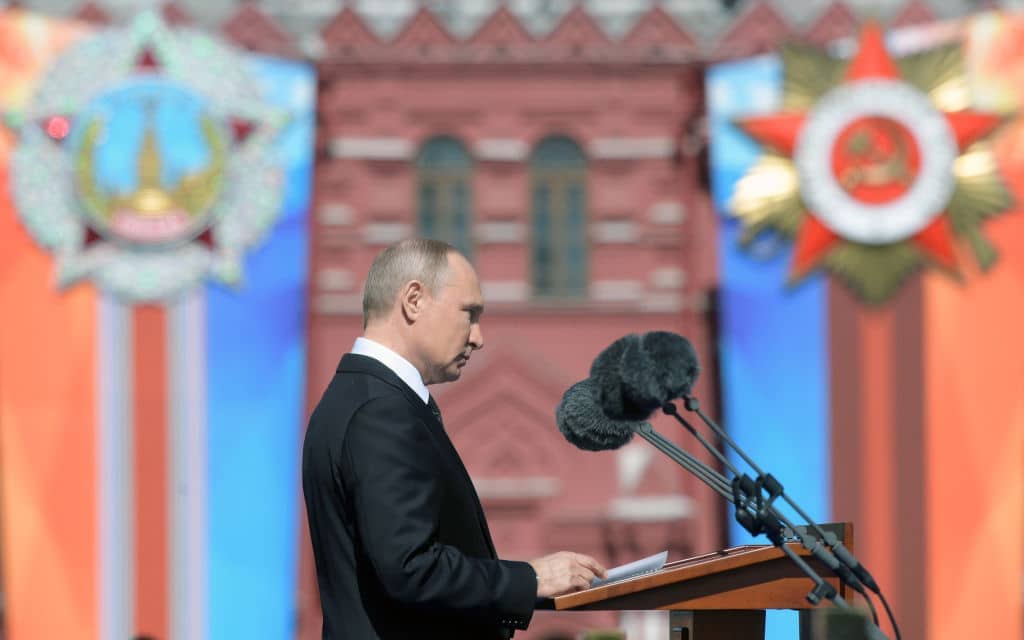On Christmas Day 1991, in his last act as president, Mikhail Gorbachev signed away the existence of the Union of Soviet Socialist Republics. A 74-year experiment that began with the ‘Great October Revolution’ of 1917 (although the USSR was formally constituted in 1922) was over. Or was it?
Thirty years on, Stalin regularly tops the Levada Centre’s survey of ‘the most outstanding personality in history’, while half of Muscovites favour the return to Lubyanka Square of the statue of ‘Iron Felix’ Dzerzhinsky, founder of the Bolshevik political police.
Russian troops are massing on Ukraine’s borders. Moscow demands that Nato should stay out of the countries of the former USSR. The control of the media and public conversation tightens. And dissidents face prison or worse. No wonder some are accusing Vladimir Putin of wanting in some way to reconstitute the old USSR.
His often-quoted line that its collapse was ‘a major geopolitical catastrophe’ of the twentieth century,’ as well as his evident dislike of Gorbachev would seem to reinforce the notion that this is a quintessential Homo Sovieticus out to restore what was lost.
Putin no more shows any signs of wanting to conquer his way to the old Soviet borders, than he demonstrates any allegiance to the old Marxist-Leninist canon
Of course, the truth is much more complex. That comment about a ‘geopolitical catastrophe,’ for example, was made in a very specific context, about the way the partition of a country left large communities of ethnic Russians or Russian-speakers effectively stranded in other countries.
Indeed, Putin has also said that ‘anyone who doesn’t regret the passing of the Soviet Union has no heart. Anyone who wants it restored has no brains.’
We should not take Russian ‘sovstalgia’ too seriously. When Russians vote for Stalin as an ‘outstanding personality,’ they are voting not for the Gulags and the Terror, but for an idealised notion of national glory and purpose. By the same token, when almost two-thirds of Russians regret the passing of the USSR, they are not hankering after a return to empty grocery shops, but an idealised memory of community and egalitarianism.
Yet Russia is still in the shadow of the USSR.
Consider the vehemence behind the way Putin is pushing back against what he sees as Western perfidy and hostility. Or his dangerous belief that ‘Russia and Ukraine… [are] parts of what is essentially the same historical and spiritual space’ and that Kyiv’s attempts to assert its own sovereignty are past of a West-imposed ‘anti-Russia project.’ In great part, this reflects his and his generation’s trauma at the end of empire.
(Let’s be honest: in Britain, we know how long it can take to work through that experience.)
In practice, the USSR ended up often emulating tsarism. (The Bolsheviks ought to have heeded Marx’s warning in The Eighteenth Brumaire of Louis Bonaparte that to force revolution onto a country not ready for it was to create a state with the instincts of the old order and the energies of the new.). Likewise, there is more than a hint of the Soviet in today’s Russia, from the growing power of the FSB political police to the reconstitution of state-controlled monopolies in the economy; from an attempt to define orthodoxy in history to the creation of a virtual one-party regime.
But Putin no more shows any signs of wanting to conquer his way to the old Soviet borders, than he demonstrates any allegiance to the old Marxist-Leninist canon. Rather, it is that it was easier for Gorbachev to sign a piece of paper and end the Soviet state than to end its psychological legacy. It takes time for nations to evolve, and ageing leaders often default back to what they know.
It is not that the Soviet Union is coming back, nor that Russians would want it to. After all, many of those Muscovites who would see Dzerzhinsky’s statue return also favour the installation of plaques commemorating the victims of Stalinism. The main reason for replacing the statue is not sympathy for ‘Iron Felix’ or his army of informants and torturers but a sense that ‘you cannot rewrite history’ but must remember it.
At a time when statues are being toppled in the West out of an apparent desire not so much to rewrite but relitigate the past, and when Putin is trying to create a cherry-picked national narrative that suits his political agenda, that ordinary Russians have such an attitude towards their past is surely encouraging – and suggests that the shadow of the Soviet era is beginning to lift.







Comments